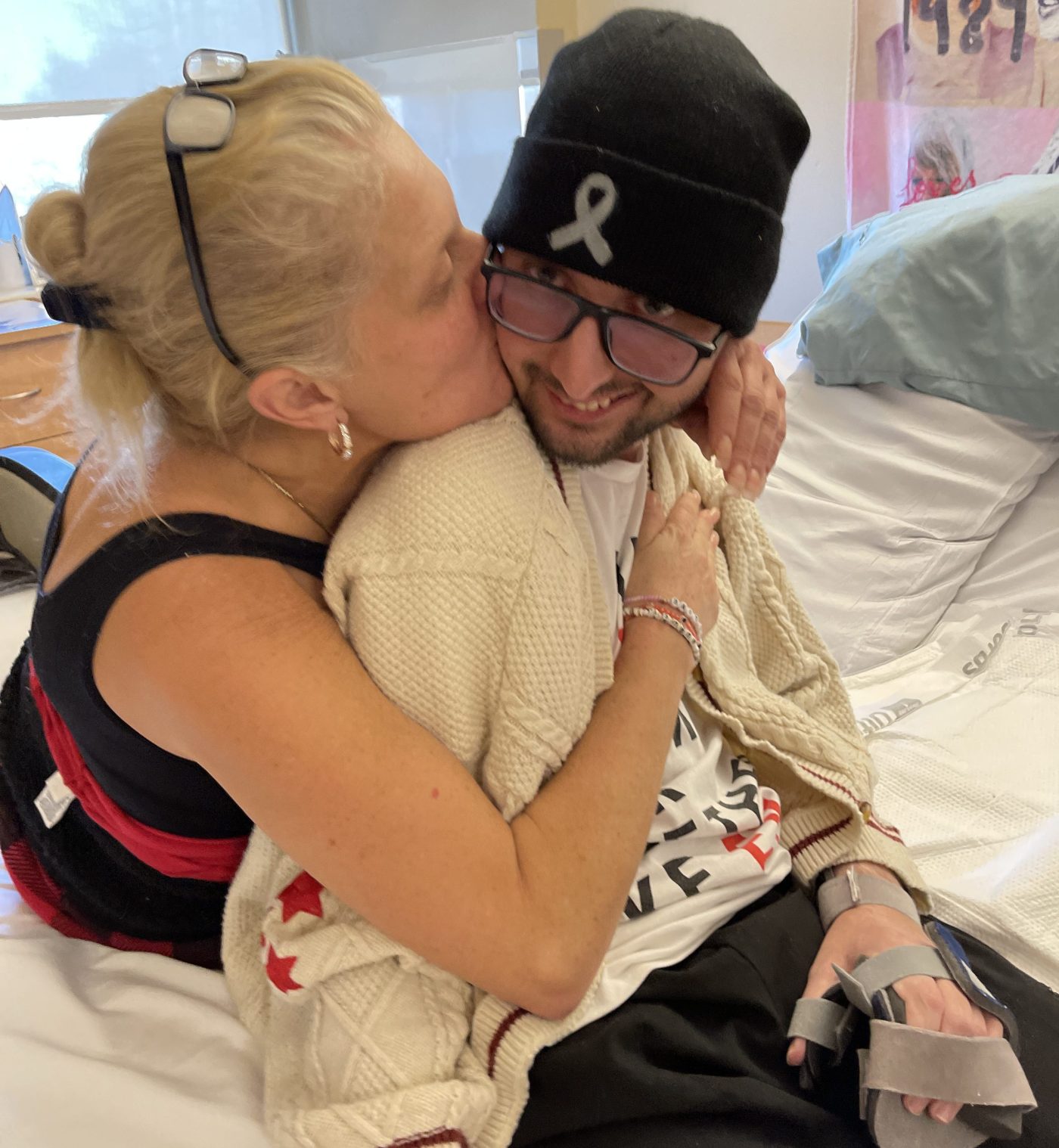Ryder Scelza, a 21-year-old from Rocky Hill, Connecticut, passed away in his mother’s arms after a long battle with glioblastoma, a particularly aggressive brain cancer. His mother, Linda Scelza, shared that in his final moments, she told him it was “OK to go,” a moment that marked both the end of his fight and the beginning of her grief. Ryder took two more breaths before he died, leaving behind a family deeply affected by his courageous struggle.
Ryder’s battle with cancer began in March 2022, leading to numerous surgeries as doctors attempted to remove the tumors. Despite their efforts, the disease proved relentless, and by late last year, his condition worsened significantly. Linda described a heart-wrenching period when Ryder was placed in a medically induced coma, after which he was unable to communicate. Following about four months at Cobalt Healthcare and Rehabilitation Center, he returned home to receive care from his family, particularly his mother and twin brother, Reno.
“He could not communicate anymore after Christmas,” Linda recalled. “He could occasionally laugh, smile, and listen to his Taylor Swift.” The music of Swift became a source of comfort and solace for Ryder throughout his ordeal. Although the family had hoped for a personal message from the pop star during his fight, they found joy in the way Ryder responded to her music, visibly relaxing when he heard it.
Linda emphasized Ryder’s fighting spirit, saying, “This boy, he fought, he beat every odd there was to beat with the kind of brain cancer he had.” She reflected on how she believed he was waiting for her to give him permission to let go. In their final moments together, she reassured him that he would be fine in heaven and could be with family members who had passed before him.
Ryder’s sister, Alyssa Scelza, expressed gratitude for being present during that final moment, believing that their mother’s words brought Ryder the peace he needed to depart. “What he did was for everyone else,” Alyssa said, honoring her brother’s legacy as a fighter and a source of inspiration for others facing similar battles.
Despite the immense toll of caregiving, Linda devoted herself to Ryder’s care, having stepped away from work nearly four years ago. She described creating a dedicated space in her garage to study glioblastoma and advocate for better understanding of the disease. Her commitment reflects the broader struggle against a condition that remains poorly understood, even as families like theirs confront its harsh realities.
Ryder’s cousin, Alfred Scelza, shared insights into Ryder’s wishes for his funeral, emphasizing his love for Disney and the details he meticulously planned for his farewell. He wanted butterflies released at his service and a horse-drawn carriage to carry his casket, highlighting his vibrant spirit and the joy he brought to his loved ones.
The staff at Gaylord Specialty Healthcare, where Ryder spent significant time, reflected on his positive influence. Joy Savulak, a spokesperson, noted that Ryder “touched the lives of every person who had the privilege of meeting him.” His care team worked tirelessly to support him and fulfill his dreams, underscoring the bond he formed with those who cared for him during his illness.
Linda shared that Ryder’s message to others would be to “never give up.” She fondly recalled how he often encouraged people to reach out to her for support, a testament to his caring nature. As a devoted fan of Taylor Swift, Ryder even tattooed the lyrics “long story short; I survived” on his body, symbolizing his resilience and determination.
As the community mourns Ryder Scelza’s passing, his family remembers him not only for his battle with cancer but for the love and light he brought into their lives. His story serves as a poignant reminder of the strength of the human spirit and the importance of fighting for a better understanding of diseases like glioblastoma.







































































